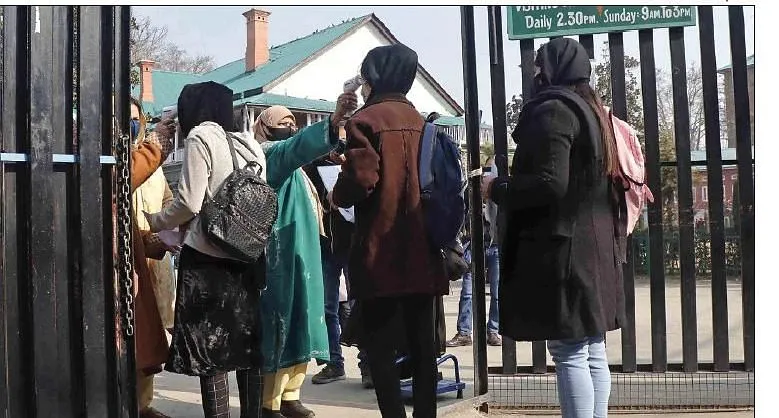Srinagar: Principal Secretary Higher Education Department (HED) Rohit Kansal Monday said that the National Education Policy (NEP)-2020 promises to change the entire higher education ecosystem in India.
Delivering his keynote address at the two-day national conference on ‘NEP-2020: Preparedness and Implementation’ organised by the HED at Government College for Women M A Road, Srinagar, he said, “NEP-2020 is a revolutionary programme and that’s why the implementation of the policy will also come in phases. Nobody expects that with a flip of a button the NEP will be implemented in its full flow,” he said.
Referring to the implementation of the NEP-2020, Kansal said that the journey of a thousand miles begins with a single step.
“And this academic session is a single step in which we begin the implementation of NEP-2020 and here we begin the implementation of this journey of a thousand miles,” he said.
The NEP-2020 was unveiled in 2020 after holding deliberations at all levels by the Government of India (GoI) and suggestions were sought from all stakeholders for its implementation.
“Now we are at a stage where time for further discussions and deliberations in a sense are closed and it is the time to implement the package,” Kansal said.
He said that all the stakeholders had an important role in the implementation of the policy.
“The universities have an important role to play. They are our affiliating organisations and guardians of our academic standards. They are our mentors and guides,” Kansal said.
He said that a lot of effort was also needed at the college level.
“The college principal and faculty of the institutions have to lead in implementation,” Kansal said.
About the important aspects of the NEP-2020, he said the policy promises multi-disciplinary academics, flexibility, the embedding of skills, Academic Bank of Credits (ABC), and employability.
“These are all words but when it comes to the implementation of the policy in GDC Baramulla, GDC Ramban, GDC Gurez, and other colleges, we have to see how we translate these words in practice,” Kansal said.
“We have to see how we ensure that the ideas which we are trying in NEP get translated on the ground providing real tangible benefits to the students who are the actual focus of the policy,” he said.
About the curriculum drafted for the three and four-year programmes under the policy, Kansal said that the University Grants Commission (UGC) had come up with proper curriculum plans for three and four-year programmes at the Under Graduate level.
“Most of us are aware that under the NEP we will have a three or four-year programme at the UG level. In the fourth year, the student will either study only a major subject if it is the honours course and can go for research as well,” he said.
Kansal said the draft curriculum was ready for which suggestions were sought by the UGC for final implementation of the courses as per the NEP-2020.
“We are expecting the final version of the programme will be announced in a week,” he said.
However, Kansal said that the focus should be on transcription of the UGC programmes at the college level while offering subject combinations to the students.
“The majors and minors (subjects) we are going to offer are to be altered in consonance with the programmes which have been unveiled by UGC. So the guiding principles for us will be the programmes unveiled by the UGC,” he said.
Speaking about bringing skills and employability among the students, Kansal said the HED, as part of UG programmes, would offer 30 credit skills programmes voluntarily.
“These will involve 12 credits of academic instruction in a particular skill and 18 credits of on-job training,” he said.
Kansal said to implement the initiative on the ground, the colleges have to partner with NSDC and enable students to get skill certificates after completing the skill course.
He said another way of helping students was to make career counseling cells active in the colleges.
“NEP talks a lot about research and for this, at least one college in each district should be made a hub of innovation and research,” Kansal said.







